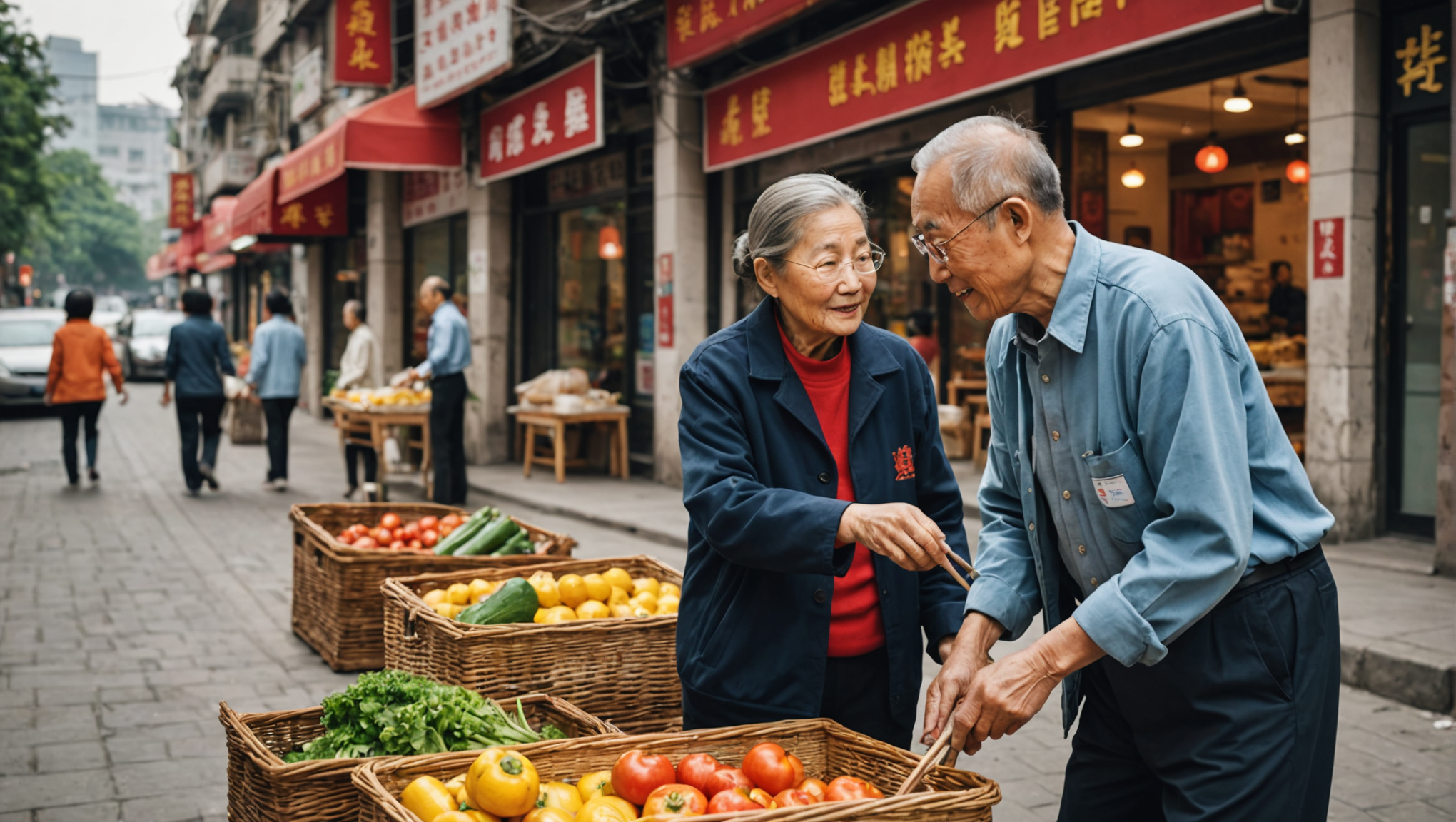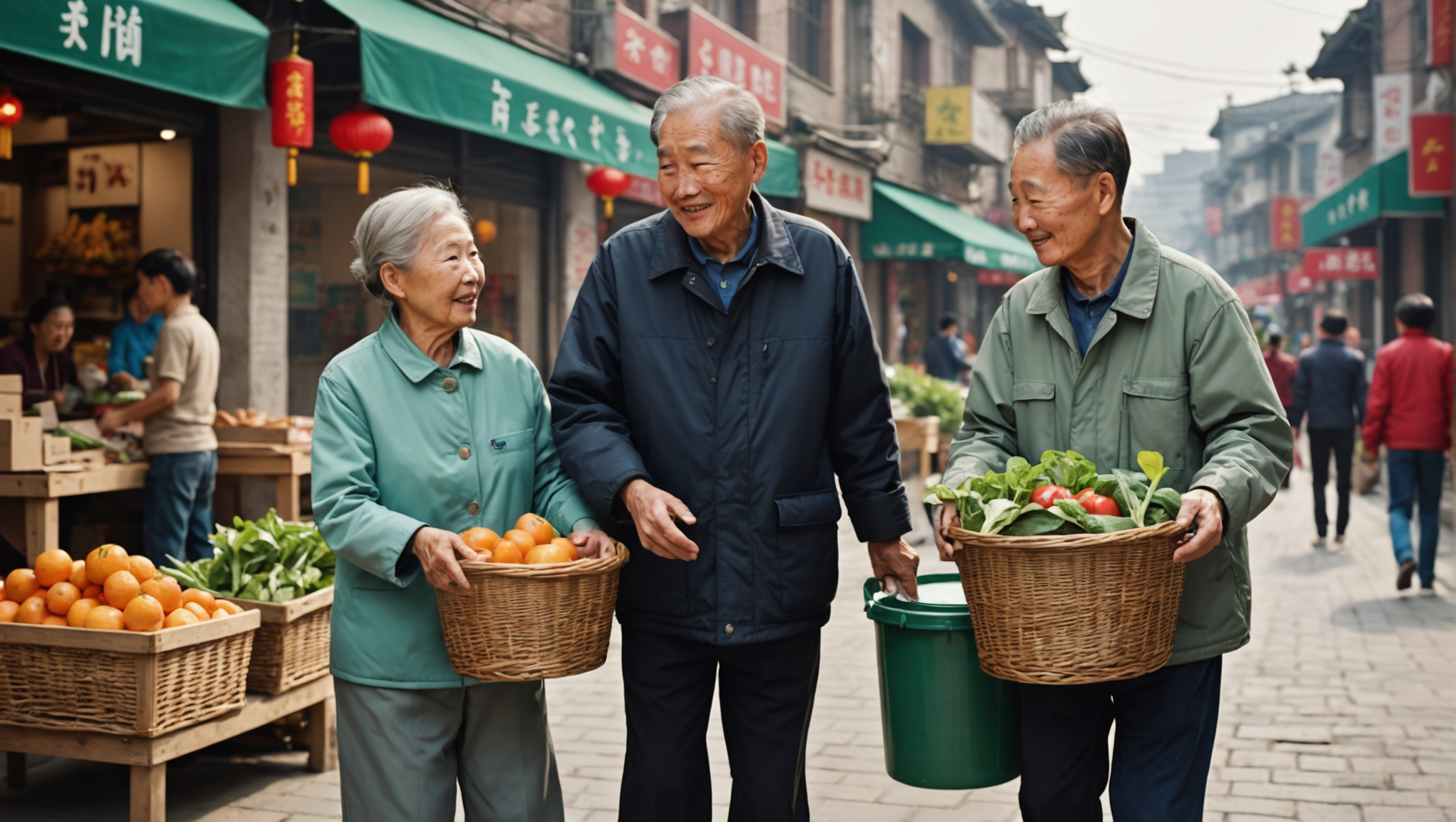Social dynamics in China are changing rapidly as the country faces an aging population and a shrinking labor market. Aware of the challenges posed by this double phenomenon, Chinese society now encourages its elders to engage in voluntary initiatives. This approach is part not only of a desire to integrate seniors into community life, but also to optimize the skills and experiences that they can offer. Through targeted programs, China aspires to transform the aging of its population into an opportunity to strengthen social ties and intergenerational support.
There China faces a double challenge: a labor market in contraction and accelerated aging of its population. To respond to this situation, the government encourages seniors to engage in activities volunteers. These initiatives aim to maintain their social inclusion and to promote their experience, while meeting the growing needs of the community. By actively participating in societal life, older people contribute not only to their well-being, but also to that of society as a whole, thus creating opportunities for community development sustainable.

Table des matières
ToggleChina encourages seniors to volunteer
Faced with a labor market which is contracting, China highlights the importance of the commitment of seniors in society. This strategy was born from a profound necessity: the country faces an aging population whose demography changes quickly. The “Silver Age” program encourages older people to actively participate in the life of their community, to share their experience and to provide solutions to societal challenges. In this context, volunteering becomes a response adapted to both the aspirations of seniors and the growing needs of society.
Support in the face of economic challenges
The reprocessing of community service, particularly through volunteering, allows many seniors to learn to interact with younger people. This approach promotes intergenerational sharing, which is essential in a country where aging population gives rise to new economic challenges. Many initiatives promote this link and encourage seniors to make their contribution, by highlighting the importance of their experience and their availability. This context enriches both their lives and that of their community, while mitigating certain impacts of the decline in the job market.
A future of opportunities for seniors
As China’s population ages, perceptions of elders are changing. Volunteering opens up a multitude of possibilities for those looking to stay active and involved in their surroundings. Older people can not only participate in local activities, but also play a key role in the education of young people and the sustainable development. Taking their contribution into account shows not only the esteem given to them but also the way in which they can be seen as essential actors in social progress. Thus, China is taking a step towards inclusive future, where seniors find their place in a dynamic and interconnected society.
A Volunteer Commitment for a Common Future
Faced with a aging population and a contracting labor market, China offers a new horizon to seniors: that of volunteering. This initiative aims not only to promote the experience and skills of seniors, but also to integrate them into the social and economic life of the country. With emphasis on the volunteering, China seeks to avoid isolation among older people and promote a sense of belonging to their community.
Seniors represent a dynamic force in society. With their wisdom and accumulated knowledge, they can play a crucial role in supporting and mentoring younger people. In addition, their involvement in volunteer activities helps to fill certain labor shortages in various sectors, including health and education. By contributing to community projects, these individuals not only preserve their mental and physical well-being, but also enrich the social fabric of their environment.
The transition to a culture of volunteering constitutes a challenge as well as an opportunity. It requires a change in attitude, both on the part of seniors and on the part of society in general. Encouraging seniors to engage in activities that are important to them can also lead to a redefinition of their role in society. Recognition of their value as agents of change is essential to create a inclusive society.
In short, the Chinese initiative to encourage seniors to volunteer is a welcome response to the challenges posed by aging of the population and changes in the world of work. It paves the way for a model where each generation actively contributes to the common good, thus strengthening intergenerational links and living together.








